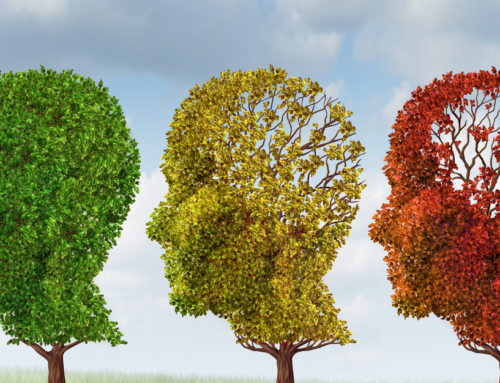You notice you’re feeling worse and worse. You suffer from chronic fatigue, pain, digestion issues, depression, anxiety, insomnia …. the list goes on.
Yet when you go to your doctor, you’re told your lab tests are fine, it’s just age, or perhaps you need an antidepressant. If you press for more tests or keep returning with complaints, you’re labeled a problem patient or told it’s all in your head.
Unfortunately, this happens to untold numbers of people with Hashimoto’s hypothyroidism each year.
When you can barely muster the energy to get through life’s daily tasks and you have long since abandoned your hobbies, sports, or time with friends, hitting a brick wall at the doctor’s office can fill you with despair.
It isn’t that your doctor is an uncaring person, he or she simply works in a paradigm that is woefully outdated when it comes to the exploding incidences of chronic and inflammatory conditions today. There are instances when conventional medicine is like a miracle, but for the one in five people suffering from autoimmune disease such as Hashimoto’s hypothyroidism (a disease in which the immune system attacks and destroys tissue in the body or brain), and countless others suffering from undiagnosed autoimmunity, chronic inflammation, severe pain, environmentally induced illnesses, food sensitivities, chronic viral, bacterial, or parasitic infections, brain chemistry imbalances, hormonal imbalances, hair loss, unexplained weight gain, and more — being told your lab tests are fine and you simply need an antidepressant can feel like a kick in the groin.
For those with Hashimoto’s hypothyroidism, although thyroid hormone medication may be necessary, it does not address the gradual destruction of the thyroid gland from autoimmune Hashimoto’s hypothyroidism.
Medical schools don’t teach nutrition
Medical doctors receive very little nutritional training despite an ever growing body of evidence linking diet with the explosion of chronic diseases today. We know, for instance, that the high blood sugar that comes from eating standard American fare can ultimately lead to diabetes, Alzheimer’s, or heart disease.
The standard approach to autoimmune disease, the occurrence rate of which far surpasses that of cancer and heart disease combined, is to wait until its advanced enough to either surgically remove the affected tissue or administer severe immune-suppressing drugs. Hashimoto’s hypothyroidism affects an estimated almost 24 million people, yet rarely does a medical doctor address autoimmune management, simply because it is not part of the standard health care model.
Gluten intolerance is still overlooked by many doctors. Standard testing for gluten sensitivity and celiac disease is limited and outdated, missing countless positive diagnoses. This despite the growing body of evidence that links gluten with autoimmune and neurological conditions. Studies also link gluten intolerance with Hashimoto’s hypothyroidism, something doctors rarely address.
Other dietary proteins can also provoke severe immune reactions, something many doctors are not aware of unless it’s a classical food allergy (which is a different beast than a food sensitivity).
Doctors are constrained by their medical education, which has yet to catch up with modern illnesses. Liability insurance, health insurance, peer pressure, lack of time, and other factors often keep them from investing in the education required to help the millions of people suffering from “mystery” symptoms which, when you look at the science, are not always that mysterious.
Functional medicine for Hashimoto’s hypothyroidism
Fortunately, functional medicine specializes in using nutritional, botanical, and nutraceutical approaches to manage chronic, inflammatory, and autoimmune conditions such as Hashimoto’s hypothyroidism. We keep up with the latest science and the latest lab testing, which is integral to unraveling chronic symptoms and conditions.
If you’ve hit a dead end with your medical provider, ask our office how functional medicine can help you manage your Hashimoto’s hypothyroidism and regain your energy, vitality, and well-being.





